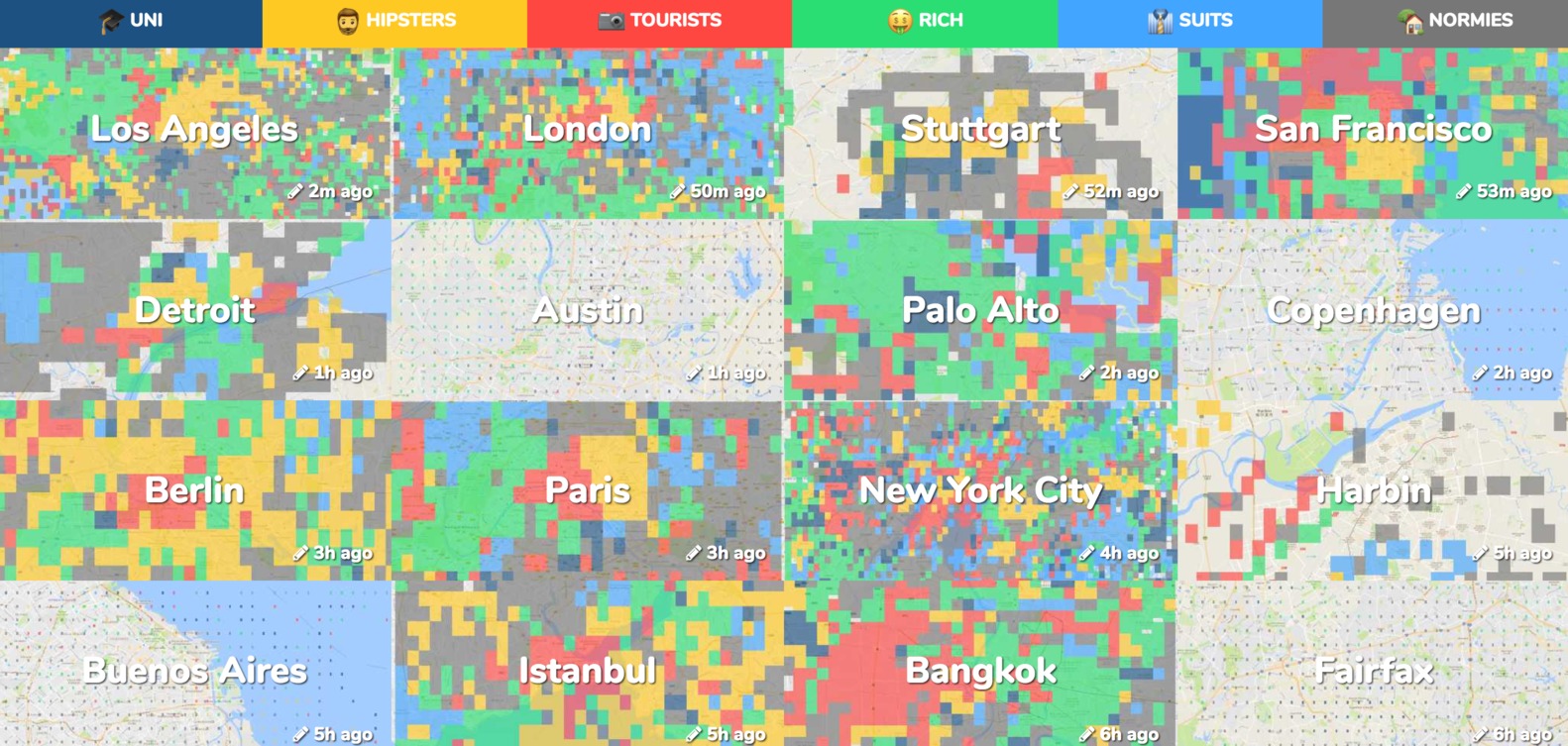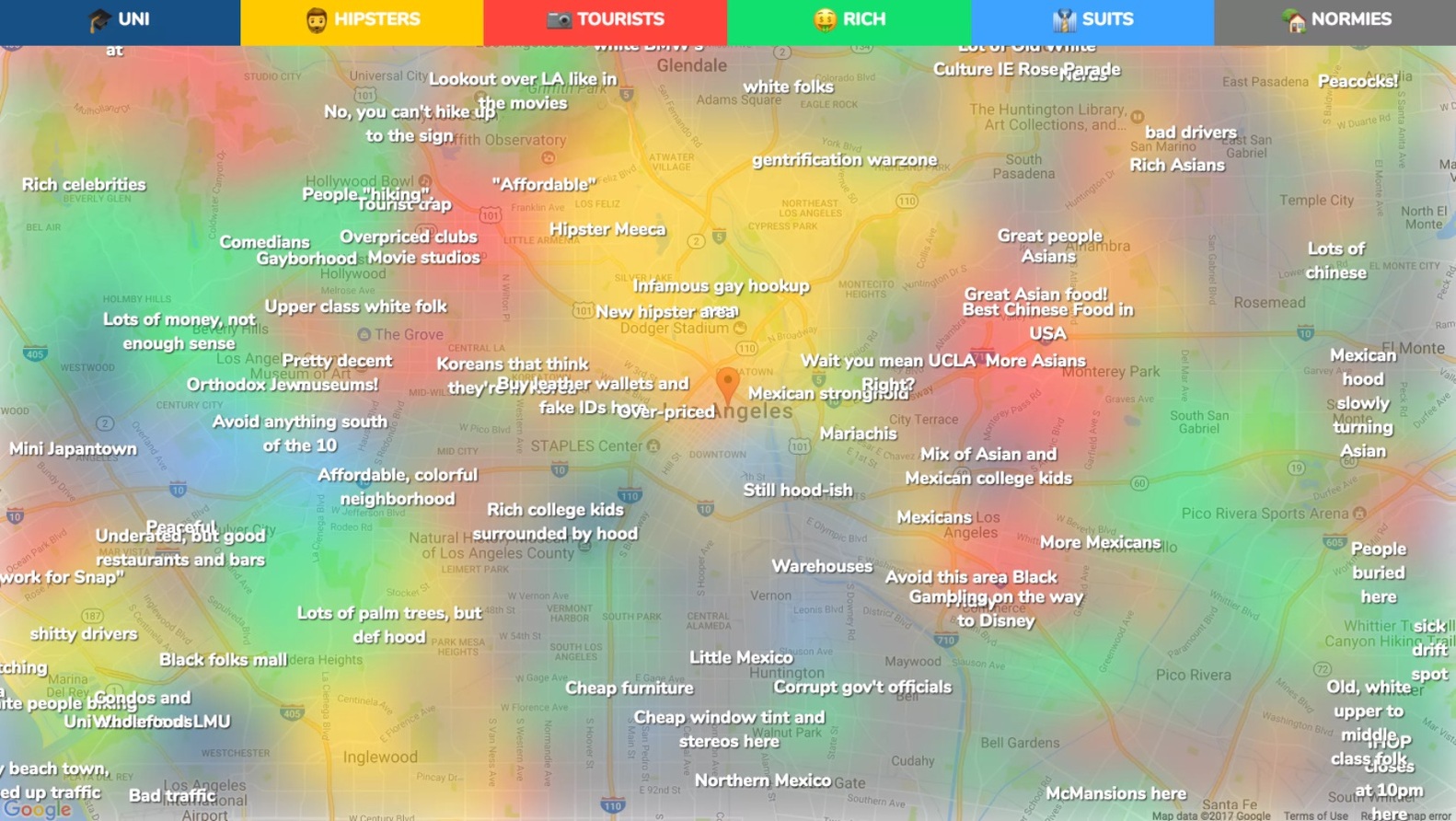Hoodmaps offers a crowd-sourced mapping platform that gives users the ability to walk through a city like a local. By “painting” parts of the city using a palette of six colors that represent “uni”, “hipsters”, “tourists”, “rich”, “suits”, and “normies”, Hoodmaps aims to provide a quick visual representation of a city.
The website features a thousand of the largest cities from around the world and is constantly being edited with new user content that flags Google Maps with information about touristed zones of cities among other information. Creator Pieter Levels noted the need for such a service when traveling and being frustrated by the difficulty in finding culture-rich zones of a city as opposed to its commercialized ones.
If multiple people cover over an area in opposing colors, the most popular will be shown. In addition to color-coding, labels such as “good restaurants” and “too much traffic” can be added to locations. These labels regulate themselves through positive and negative votes, and are able to be tagged “nsfw”.
From our partners:
Paris
London
How places in a city are experienced and perceived are an important part of urban design theory. Depending on their material, architects and planners can benefit from the data that websites and apps such as Hoodmaps provide. Because of their easy accessibility, they create a pipeline for the public to input their views on the city and for officials to gauge information.
Vancouver
Despite initial success and acclaim, the website could find itself the company of a variety of crowdsourcing mapping apps that have been criticized for reinforcing negative stereotypes. Most notable of these was an app released 2015 called “SketchFactor” that had users identify locations they deemed “sketchy.” Even though the developer’s purpose was to provide alternative crime information, the ambiguity of the term “sketchy” quickly led to posts accused of racism and profiling, eventually escalating to the app being shut down. By allowing mostly unfiltered public input, Hoodmaps is similarly at the helm of its users’ biases, which could ultimately lead to a parallel fate.
New York
The young website is still in the process of editing and expanding, aiming to create functions such as letting users draw and share their own maps. Levels also envisions using the website to draw statistical conclusions and relationships. In addition to its technical capabilities, the long-term success of the website will be dependent on its ability to invite quality content that helps locals and tourists discover a city.
Los Angeles
Visit Hoodmaps here.
This feature is written by Annalise Zorn & originally appeared in ArchDaily.

















